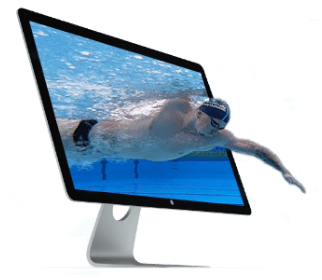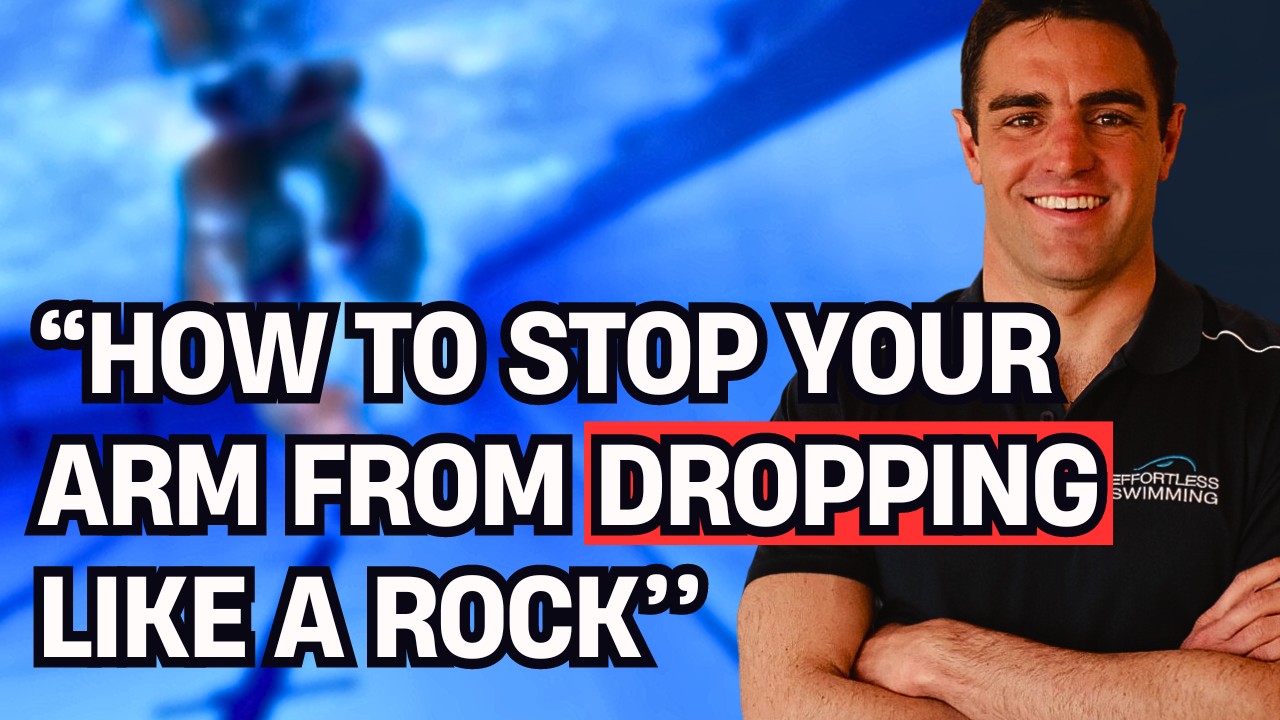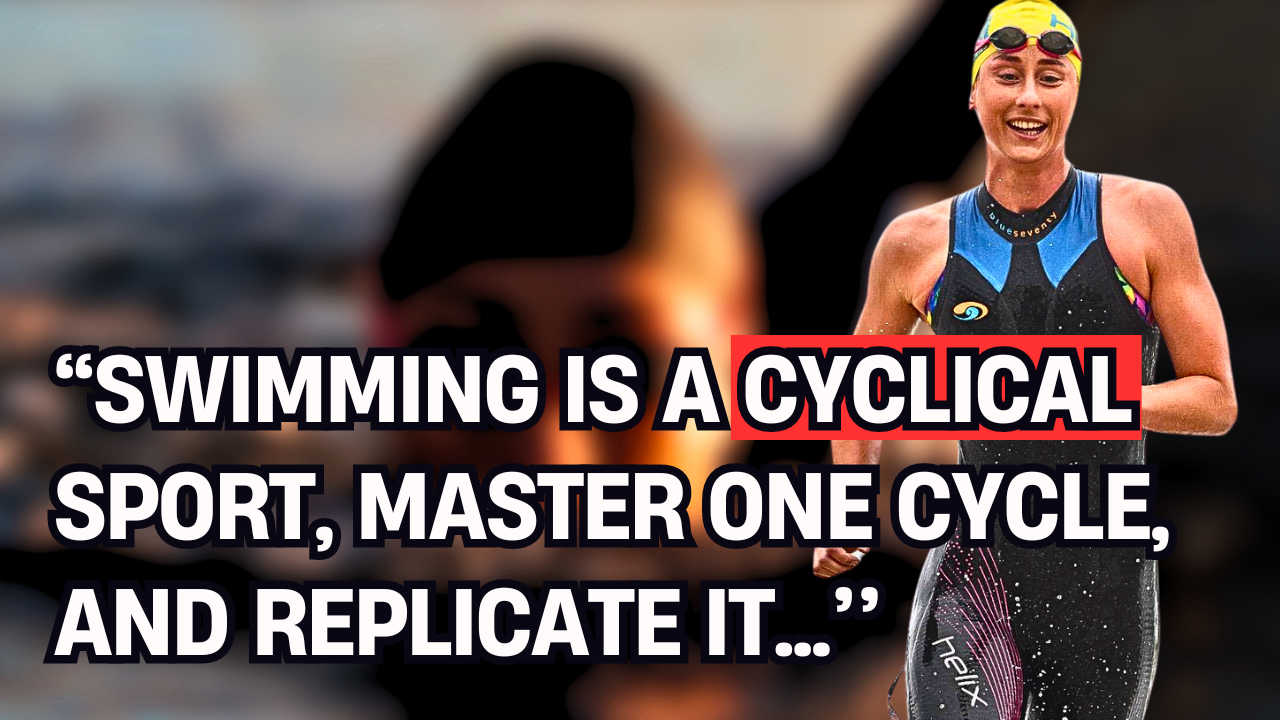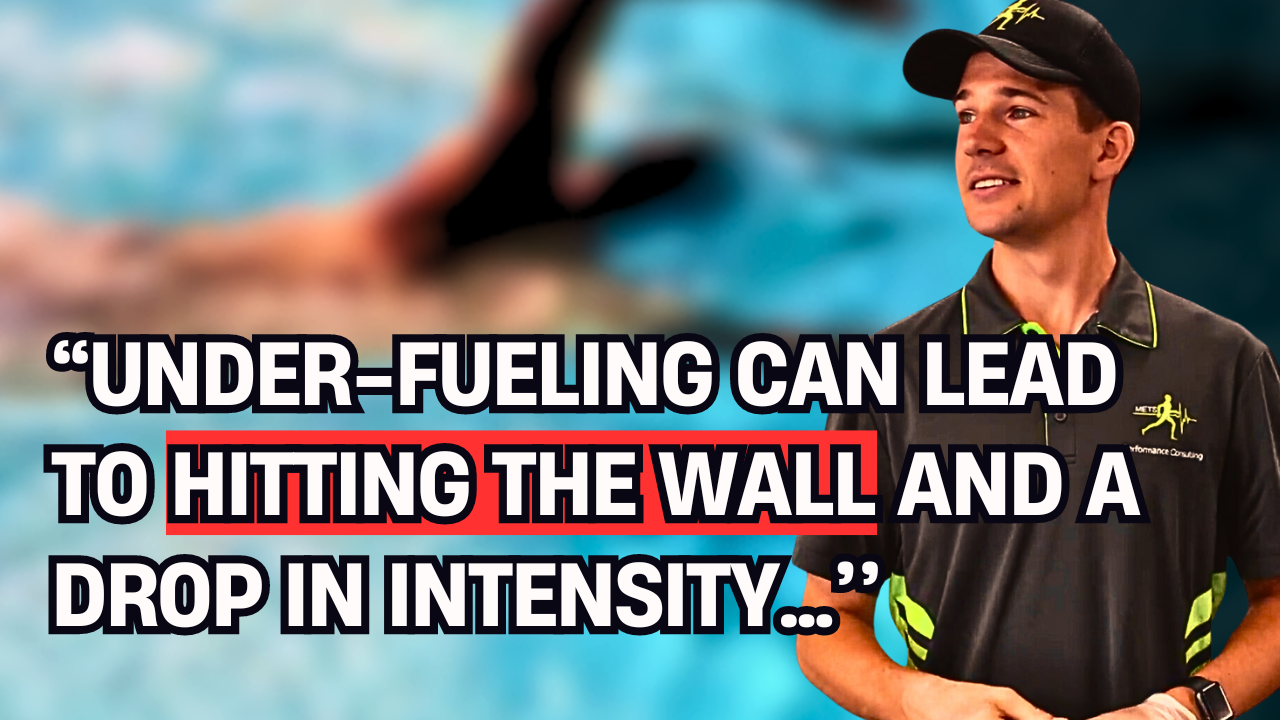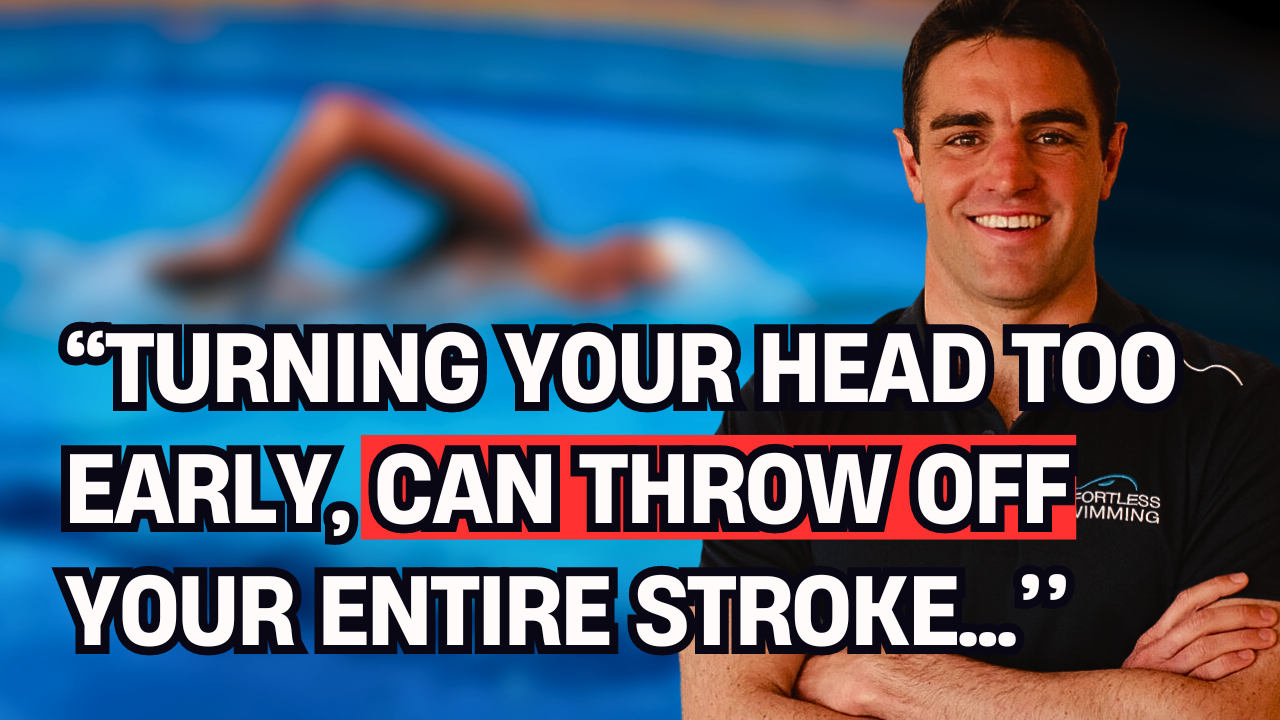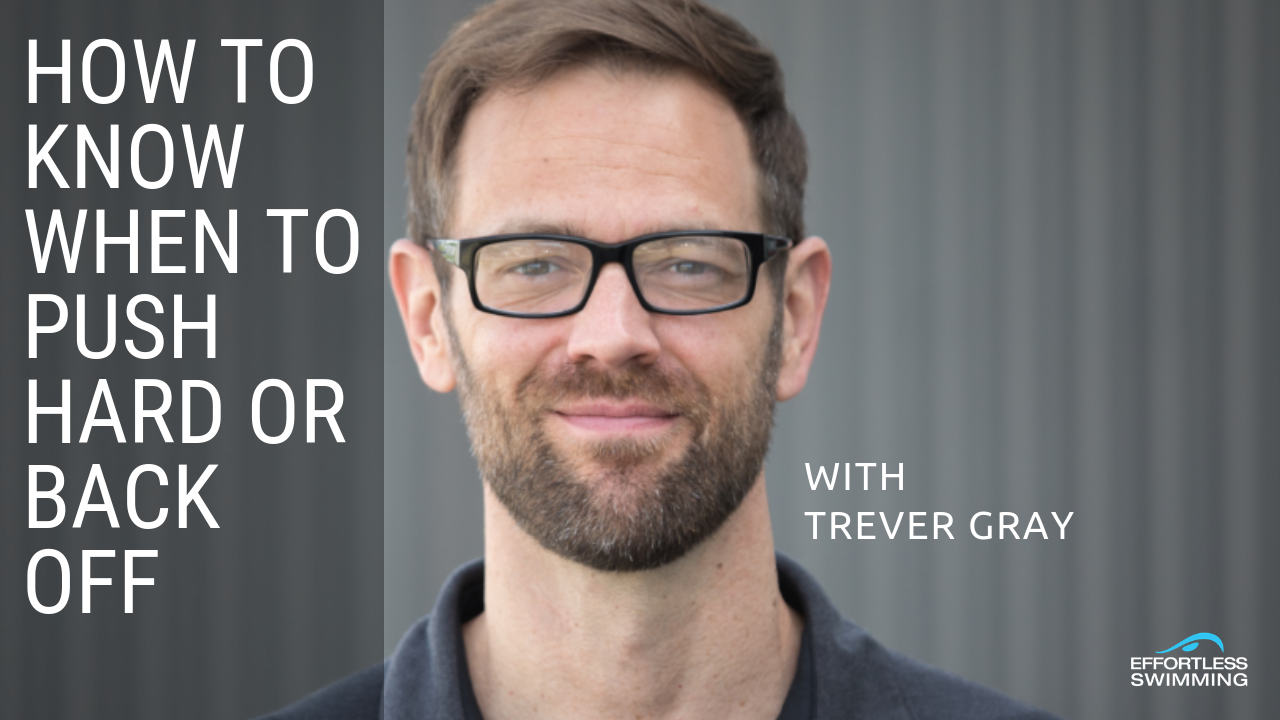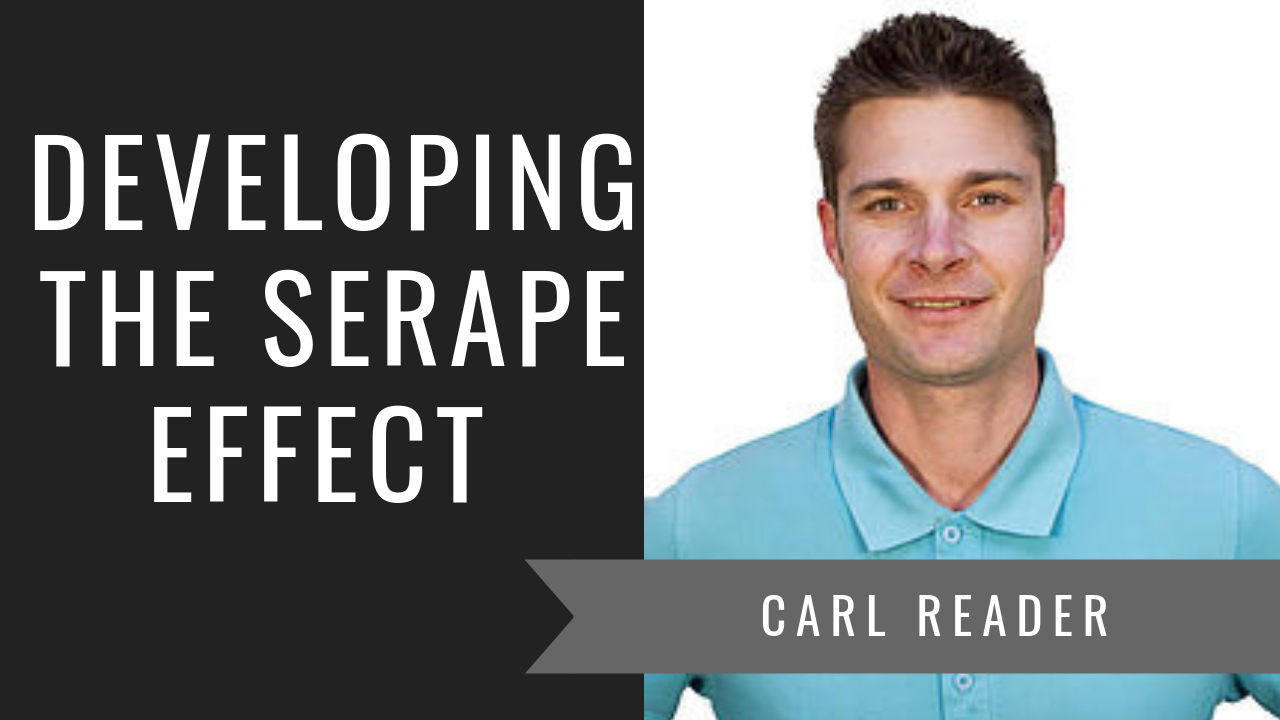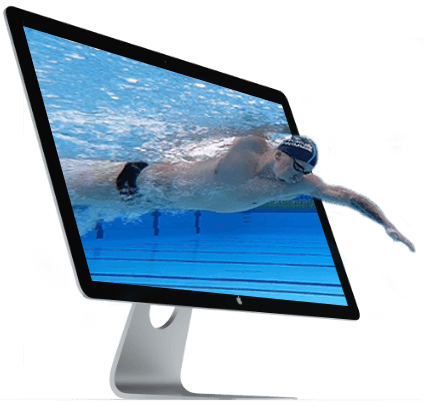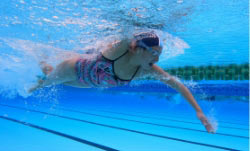My guest today is Ryan Roselli. He attended one of our freestyle clinics in Brisbane last March. During the Cairns Half Ironman, he managed to swim 5 minutes quicker than last year. In this episode we, talked about the things he focused on in his stroke, making the changes permanent and some advice to swimmers and triathletes who been wanting to improve their swimming.
16:12 Ryan’s Swimming Background
02:43 Attending Effortless Swimming Freestyle Clinic
03:55 Key Point Take-Aways From The Clinic
06:07 Locking Changes as a Habit
07:36 First Couple of Weeks
10:15 Curve
11:28 Race Day Focus
16:00 Swim Time Target for the Next six to 12 months
16:34 Advice to Swimmers Wanting To Improve Their Time
17:55 Filming Yourself
Transcription:
Brenton Ford: This is podcast episode number 133. My guest today is Ryan Roselli.
Brenton Ford: Ryan came to a freestyle clinic of ours in Brisbane in March this year. He had the Cairns IRONMAN or the Cairns Half IRONMAN.
Brenton Ford: Ryan messaged me the other day and he said that his time last year for the swim was 36 minutes. This year, after doing the clinic three months prior, he was able to get down to 31 and a half. Basically a five-minute improvement, or five minutes and six-second improvement, over the course of three months there.
Brenton Ford: I’ve got Ryan on the podcast today to talk about what’s the things he focused on in his stroke, how he went about making those changes, and how he to ingrain those changes as muscle memory and make it permanent. He also talks about what he focused on in the race and what advice he has for other triathletes and swimmers in a similar position, who are wanting to swim faster but they’re not sure how. Ryan gets into it by talking about what his swimming background was coming into triathlons.
Ryan Roselli: I didn’t really have any swimming background. I used to do some triathlon back at secondary school. My highlight being racing Dino Bozzone at New Zealand secondary schools way back. I was second to last out of the water so I’ve never been a strong swimmer and it’s just something that I’ve had to spend some time working on. Yeah. Certainly over the last year, two years, it’s all new to me really.
Brenton Ford: Is that when you started doing triathlons, two years ago?
Ryan Roselli: Yeah. I had a friend that did Cairns 2017 and I did half. I followed him in his race. I thought, “Well if he can do it then I can certainly do it.” After a couple of weeks of thinking about it, I decided to … I talked to my partner about it and I said, “This is what I wanted to do and have a crack.” She said she would support me.
Ryan Roselli: She came from a swimming background. Yeah. She said I should start going to the pool and start swimming. She said, “The first swim just starts on the pad. You’ll probably struggle.” I went to the pool and I swam two pan, I felt all right but I wasn’t breaking any records but it’s just been a build from there.
Brenton Ford: Take me back to, I guess, a couple of months ago. You first came to a clinic in March this year. Then you had Cairns in June. Take me back a couple of months ago. What made you decide to come to a clinic and start working on your stroke?
Ryan Roselli: For me, I’d never had any sort of coaching so I wasn’t many any inroads with my swimming. It was … My times weren’t really improving as much as I was trying to get quicker. Olympic races and all that stuff that I was doing locally, there was no change. I’d find I was just playing a game of catch up when it came to the bike and the run. I decided if I want to get any better at this then I need to start swimming better.
Ryan Roselli: I’d been recommended by others in my tri club to come along and give one of your sessions ago. I thought, leading into Cairns, it’s a perfect time. It gives me a good three or four months of lead-in work to work on whatever we covered in the clinic. Yeah, for me it certainly worked.
Brenton Ford: What were those things that you took away from the clinic? What were those key points that you ended up focusing on for the three months going into Cairns?
Ryan Roselli: My biggest one was probably putting on the brakes or personally that’s what I think. Coming into the water and my hand was just shooting back up to the surface. I think every single stroke was just slowing me down.
Ryan Roselli: I think from there getting on those train tracks. Straightening everything up. There’s a little bit of hand entry and breathing. I think to combine all of those things.
Ryan Roselli: At that time I’d been watching your videos as well so I was aware of trying to get my elbow in the right position for that catch. Elbow higher than the wrist. I was aware of that but it wasn’t until I actually saw it on video that I saw and I’ve actually veered away from that. Certainly focusing on the drills to dial that in as well.
Brenton Ford: What did you … Actually going back to when you came to the clinic and I look back at those videos, the video we took at the start and the one we took at the end when you were trying to make some changes there at the end because I think the main thing in that second video, at the end, that you focused on was entering further out and avoiding putting the brakes on. Even just that change alone, I reckon, that was one of the real main ones that just made the stroke flow a lot better. So much less drag being created and it just kept the speed up so you weren’t decelerating as much each time. Just, from my perspective, looking at that difference there, it’s like if you can focus on that for three months that’s going to be a huge difference.
Brenton Ford: You already had some pretty good aspects of your catch and pull in place, which was really nice to see. I think for you, looking at the stroke, there was just a couple tweaks to those things that you were mentioning. Like hand entry further out, don’t put the brakes on, don’t lift the head too much to breathe. Just tweaking a few of those allowed you to use those really good aspects in the stroke that you had.
Brenton Ford: What did you do to lock in those changes as habit and change that muscle memory because it’s easy to change something once but then it’s very easy to fall back into old habits. How did you make those changes?
Ryan Roselli: Yeah. Since the camp almost every single session that I’ve done by my open water I’ll get in and do 500 meters of drills. The five drills that I took away from it I’ll do. 50-meter drill, then just swim back with the fins on, with the snorkel on and focus on my stroke. Then going forward, and through my sets that I do, and training with the … Oh sorry. With the pool buoy and with the hand paddles I will do all of those with a snorkel so I can really focus on my stroke. I don’t have to worry about the breathing side of things. I think, for me, I’ve found really focusing on that stroke with the setup of the drills at the start to just … For me being able to remember the points that I have to focus on. Then going through the session focusing on the high elbow, and the catch, and the hand entry, and not putting on the brakes.
Ryan Roselli: Two or three times a week doing those drills has really helped me to actually implement it in a race situation.
Brenton Ford: How did you feel in the first couple of weeks? Was it one of those changes that made you feel better straight away or did it feel a bit unusual and worse? How was it for you?
Ryan Roselli: I think yeah my speed didn’t change initially. There were a few bits and pieces. Some of them felt good, some of them felt bad. Still, even now I try to focus on lengthening out and the head position that we talk about when you’re at the clinic. I still forget about that because it wasn’t one of my main points that I had to think of but I’ll be swimming along, and it’ll just come into my head, and I’ll make that change. Even still it feels weird to do a few of these things but it is starting to become more second nature, which is really good.
Ryan Roselli: Obviously, since then been watching videos and trying to implement a bit of the serape one you were talking about with Josh. Again, I forget about that and I don’t know the drills associated with that but I kind of … By watching the video I kind of understand the dynamics of it, and what it should feel like, and what it should look like. I’ll think about that half-way through a length and I’ll try to add that in as well. You can certainly feel the difference but for me, I think going forward, something like that there is really going to help take me to the next level as well.
Brenton Ford: Yeah.
Brenton Ford: Did you end up seeing an improvement in your times within those three months in training or it wasn’t until race day that you were able to see that difference?
Ryan Roselli: No most definitely. I was, I think, within the first week I already had a 200 meter PB. That was in the middle of a session, I was swimming faster than I typically would have swum, say, a 200 meter at the start of the session only two weeks earlier. I did have pretty immediate improvements.
Ryan Roselli: Then going forward noticing my 100 splits coming down as well in my speed sessions. Even in my more tempo sessions, my 400 and 500 splits were coming down. Then on weekends, I tend to go out and do an open water swim as well. Noticing across the board there as well, that those splits were coming down in 1,000 meters of 1,500-meter intervals. Most of my times I noticed within three to four weeks were starting to improve.
Brenton Ford: Was it a constant improvement or did you find on some weeks it would regress a little bit and then you’d be able to improve again or what was that curve like for you?
Ryan Roselli: Yeah. No, it certainly didn’t just keep coming down. Some weeks I felt really good. Then other weeks I would go backwards and I’d be like … I just had no rhythm. I can’t explain why that was but if you go back through my training piece, to where I comment to my coach, there’ll be a lot of that where I was up and down, and up and down. But if you look at a training graph, I suppose, of those three months you could certainly see bits and pieces coming down which was really big.
Brenton Ford: Yeah. That’s how I normally find it is. It’s over the course of time that improvement it keeps going but it’s this up and down where it will … Yeah, it often gets faster. Then you can slow down and feel like you’ve forgotten how to swim. Then the next week it might feel really good. It’s not always going to feel better. The main thing is just to keep … Like you did, just keep following the process and keep doing the drills. Keep that focus on the stroke and know that it’s going to happen over time.
Brenton Ford: Then come race day, you’re there on the starting line at Cairns, what did you think about in the race? Were you focused on your technique or did you just let it be where it was at, and you focused just on racing, and your pace?
Ryan Roselli: Started out wanting … For anyone that’s swum Cairns you know that the first half of the race is out, and into the current, and into the swell. I wanted to push a little bit harder going out. You obviously start off and then you start to get a bit more warmed up. For some reason, I decided not to do an in-water warm up this year but just focus more on strength training and getting my arms moving out of the water. A couple of hundred meters into it you’re starting to get into a good rhythm. Then you start to feel a little bit of fatigue starting to set in so it’s at those points that I really think back to, “Okay, what do I have to focus on with my stroke,” and try and get that high elbow catch. Focus on those changes that I had been working on in training over the last three or four months.
Ryan Roselli: Then you make the first turn, make the second turn. Then just a matter of coming back with that current and riding the current. Just try to increase the tempo a little bit. Get the arm turnover a bit higher. You don’t have to fight so much into the current, which was really good. Just enjoy the swim from that point.
Brenton Ford: Back in March what … Your time the year before was around that 36-minute mark and you’re down to 31 and a half this year. What did you think you were capable of doing in the race this year, time-wise for your swim?
Ryan Roselli: Pre-race I was hoping to dip just under 31 but with … There was … Well if you saw the weather leading into the race it certainly wasn’t conducive to fast time. Ultimately, based on the day, I think that there was a really good time. I had been saying to my coach that I wanted to swim low 30s, being 30, 31 minutes. I don’t think he believed I’d actually do it but I had the belief that I’d been working hard and I’d been pushing him to come along to one of your courses. I think he’s going to sign up probably for the next one that’s coming up.
Ryan Roselli: Yeah I think I had believed I could probably go into the 30s, low 30s. I was hoping for … I had said to people I was hoping for a five-minute swim per minute. Looking at my times it was five minutes and six seconds so pretty spot on to where I thought I was going to be.
Speaker 1: Oh well done. Was that just based on the times that you were doing in training leading up to the race or just roughly where you felt like you could get to?
Ryan Roselli: Probably a bit of both. If I looked at my swimming leading into Cairns 2018 compared to this year, from what I’d swim the year before, I’d done two seven and a half [pay 00:14:35]. I was swimming at an average pace of 142, 143 per 500 meters. Whereas a month before Cairns this year I was doing that and swimming 127 splits. I knew that I was about 15, 16 seconds per 100 faster. Most of my training done in the pool without a wetsuit. For me, a wetsuit does make a big difference as well.
Ryan Roselli: Going forward to my next race it was a big decision or a big part of the decision as to where I was going to race because it was a wetsuit swim.
Ryan Roselli: But yeah, obviously when you know you’re swimming faster in training you can do it. For me, I thought, “Well if I can swim that pace in training over, say, 200 then over the 1.9 K with a wetsuit it should be pretty similar in those conditions.” It did work out pretty spot on as to where I thought it could be.
Brenton Ford: Then in the next six to 12 months what are your targets for your swim time? What do you feel like you can get down to?
Ryan Roselli: Next race I’d like to dip under 30 if I can. As I said it’s a wetsuit swim but it is fresh water. I’m heading over to [Chongming 00:15:55] in Shanghai. My ultimate goal is to qualify for Taupo 2020. There’s a lot of work to be done. Obviously, if I can get another two or three minutes off my swim though I think that would go a long way to helping me. Then we’ll go from there.
Brenton Ford: For anyone who’s listening to this who’s wanting to improve their technique, or they’re in the process of doing that at the moment, what advice can you give to them? What would you recommend they think about or are willing to go through in that period of change? What advice can you give to people?
Ryan Roselli: I always wish I had gone to one of your clinics earlier. You spend all this money swimming every week. You got a pool membership, or paying daily, or whatever it is that you’re doing. If you don’t know what you’re actually doing then what’s the point? You could just turn up on race day if you’re not improving. I always wish I had probably gone a year earlier but for whatever reason … To be honest I probably didn’t even know about the clinic a year earlier but I wish I’d signed up earlier once I did find out about them.
Ryan Roselli: Then once you’re at the clinic just work hard and focus on it. If you can, swim an extra time a week, an extra session a week. That’s what I’m trying to do now, is fit in four sessions a week instead of three, which certainly go a long way with that extra swim fitness and strength as well.
Brenton Ford: Yeah. I think that … Four sessions a week can really help as well. Especially if you don’t come from a swimming background it’s the fitness, and also just the feel for the water, and developing the rhythm, and timing. It helps a lot with four.
Brenton Ford: I mean, even if you … We have a lot of people who listen overseas. I mean we mostly run clinics in Australia but I did a video … I put a video on YouTube yesterday about how to film your freestyle … How to swim your stroke if you don’t have someone there to record you. You can get these GoPro attachments in the water. Just even seeing what you look like in the water can be the first step.
Brenton Ford: I mean, I ran clinics for about three years until I actually filmed myself. It wasn’t until I looked at myself and went, “I’m not doing that. That is not me.” Then started that process of changing it over the last couple of years. Yeah, it makes a big difference once you actually see yourself because the perception is always very different than reality.
Ryan Roselli: Yeah. Very much so.
Brenton Ford: Yeah.
Ryan Roselli: I know there were a few guys in our office that we signed up to the corporate tri. It wasn’t long after the clinic. He was swimming at lunchtimes, and I just one day brought along my GoPro and filmed him, and he was just absolutely shocked as to what he was doing. He thought he was so much better than what he was. Even for him it … I got him onto your videos and he’s been watching those. He’s learned a lot just from watching.
Brenton Ford: Yeah. That’s fantastic.
Brenton Ford: Well thanks so much for joining me on the podcast. Well done on such a massive improvement. I want to preface it to say that for the five minutes … Yeah, five minutes is a big improvement in the space of three months. From doing the clinic to racing but it’s a huge testament to the training that you obviously put in, and the commitment to doing those drills, and doing it every time. Well done. I’m sure we’ll see you again in the future.
Ryan Roselli: Yeah. No doubt. I think I’ll be coming along with my tri club in a few months to get a followup filming session done and hopefully make some more gains before Shanghai. Thank you very much for all your help.








